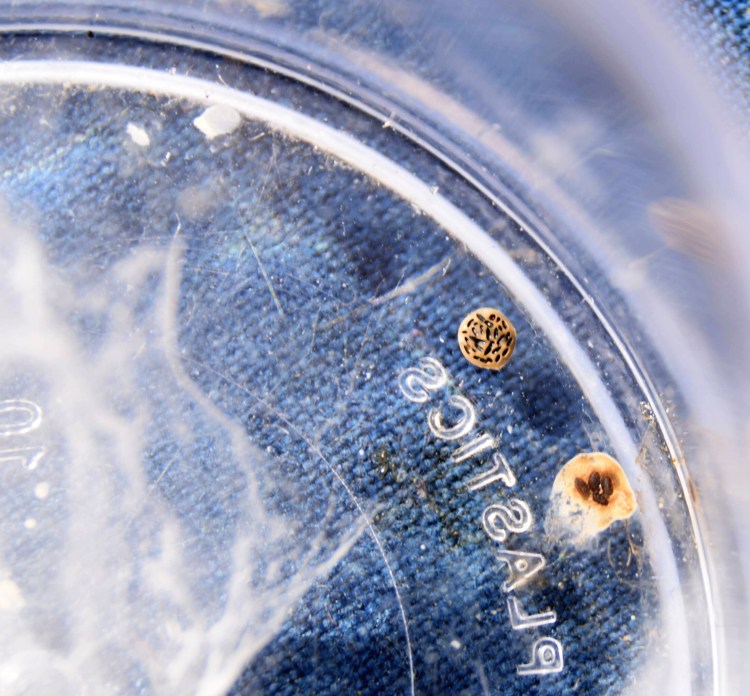I know a question that’s on everyone’s mind this summer is: Do spiders defecate?
Well, the answer is yes, they do. You might not be surprised to learn there hasn’t been a whole lot of research into this phenomenon, but a couple of studies have shown that some spider species, at least, go out of their way to keep their surroundings clean.
A spider eats by capturing a prey item, such as a fly, disabling it with venom, then washing it with digestive juices and sucking the liquid through the mouth with the stomach, which acts like a pump. The liquid gets processed in the stomach, located in the spider’s cephalothorax (the front, or head and shoulders half of the body), and the remains run through an intestine into the midgut located in the abdomen (rear half). Waste material from the midgut travels through tiny channels called Malpighian tubules to a cloaca, which holds the excrement until it can be discharged through the spider’s anus.
Like many other creatures, when you take a close look, spiders do not defecate randomly. In a study of adult female goldenrod crab spiders (Misumena vatia) living on milkweed and wild marjoram plants in South Bristol, a researcher found that the spiders had a common routine of scurrying to the tip of a petal or leaf, lifting themselves on their large front legs, with their abdomens raised, and releasing drops of a whitish liquid which fell either all the way to the ground or onto a lower leaf of a milkweed plant. Captured goldenrod crab spiders, when allowed to climb to the rim of a vial, did the same thing, making sure the waste material cleared the rim. Goldenrod crab spiders who were held in vials routinely waited until they were released to defecate, even after periods of up to 47 days. They just did not want to foul their immediate surroundings, it seems.
Another study in Missouri on black-and-yellow garden spiders (Argiope aurantia), which are fairly large spiders you may well have seen in their orb webs in fields or the side of your house, similarly followed particular routines for going to the bathroom, as we say. These spiders tend to hang upside down at the center of their webs for long stretches of time. So if they were to defecate at random with the anus pointing up, the excretions would fall down and foul themselves and the webs.
The researchers found the garden spiders had two methods of solving this, usually at night. One was to shift around on the web so the anus pointed down, or nearly so, and let the droppings fall clear of the silk. In the second method, the spider attached a line of silk to the hub of the web and used it to descend to about the level of the bottom of the web. The spider then turned its body so the anus pointed straight down, released a dropping, then climbed back up the line of silk (or dropline, no connotative relation to dropping). The whole process usually took 10 to 15 seconds.
The spiders’ cleanliness might be a way of avoiding predators. In other words, if a wasp spots evidence of you on the ground, that’s where it might hunt for you, when actually you’re up high on the milkweed plant or in your orb web. The presence of excretions might also serve as a warning to prey items, and alert them to the presence of the crab spider, which hunts for its living, or to the garden spider’s web.
You might be wondering how in the world I got onto this creepy topic. Well, I kept noticing spots appearing in vials where I keep my spider captives for a day or two for identification purposes. (No spiders were harmed during the making of this essay.) The captives were grass spiders (which build funnel webs) and furrow spiders (which build orb webs).
So I wondered what the arachnologists make of it. That’s all.
Dana Wilde lives in Troy. You can contact him at naturalist1@dwildepress.net. His recent book is “Summer to Fall: Notes and Numina from the Maine Woods.” Upcoming later this year is “A Backyard Book of Spiders in Maine” from North Country Press. Backyard Naturalist appears the second and fourth Thursdays each month.
Send questions/comments to the editors.



Success. Please wait for the page to reload. If the page does not reload within 5 seconds, please refresh the page.
Enter your email and password to access comments.
Hi, to comment on stories you must . This profile is in addition to your subscription and website login.
Already have a commenting profile? .
Invalid username/password.
Please check your email to confirm and complete your registration.
Only subscribers are eligible to post comments. Please subscribe or login first for digital access. Here’s why.
Use the form below to reset your password. When you've submitted your account email, we will send an email with a reset code.